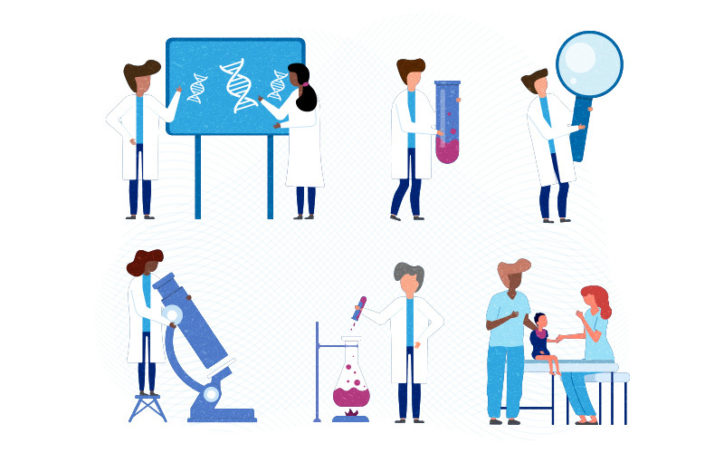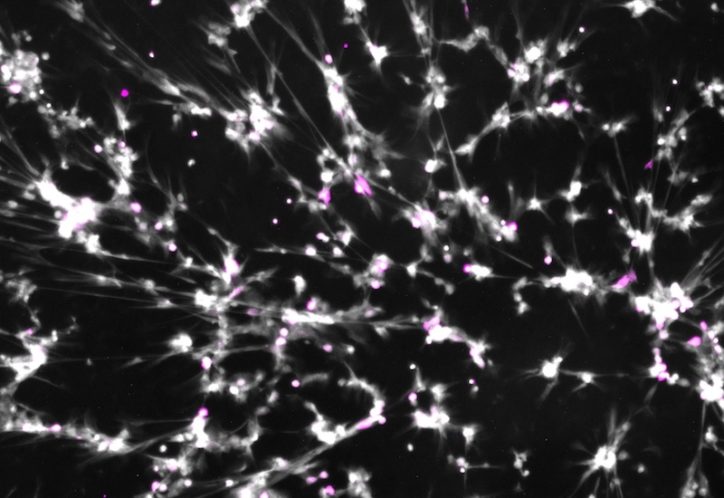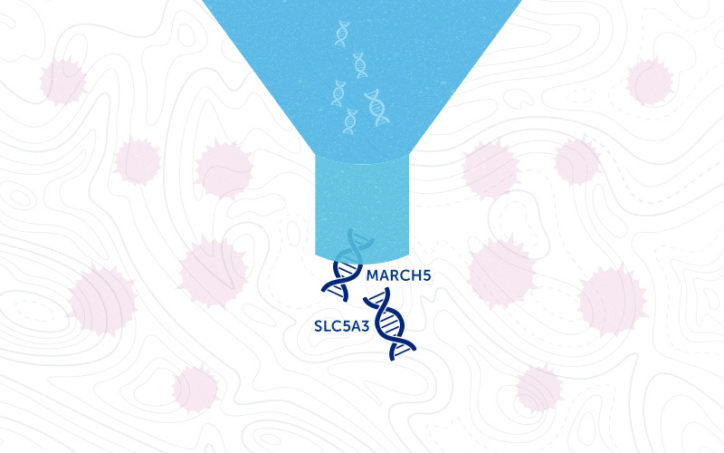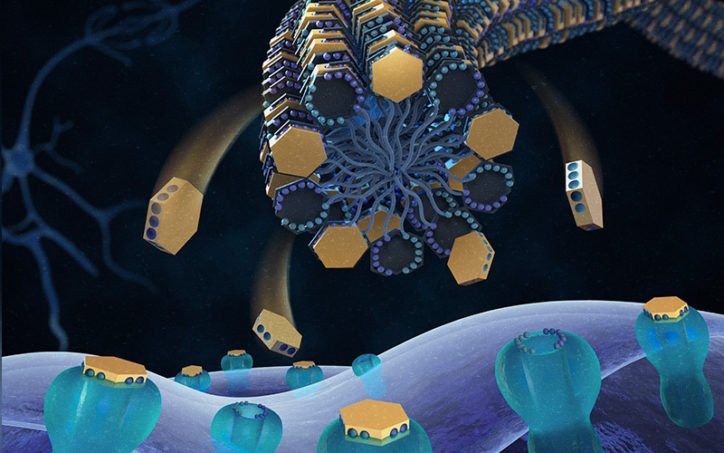Archive for drug development
Why do so many dementia treatments fail? Questioning mouse models of tau accumulation
To date, the search for effective treatments for dementia has yielded only disappointments. Many recent drug candidates target the tau protein, which aggregates and forms tangles in patients’ brain tissue and is involved in 75 percent of all dementias. While tau-targeting drugs have looked promising in mouse models, they’ve failed in clinical trials. A recent ... Read More about Why do so many dementia treatments fail? Questioning mouse models of tau accumulation
Tagged: alzheimers disease, drug development, neuroscience
‘On fire’ with sJIA: When arthritis is much more than joint pain
Georgia is finally living her best life. Her toddler years were challenging: At 15 months old, a series of high fevers landed her at Boston Children’s Hospital for two weeks. After many rounds of tests looking for infection and a bone marrow biopsy to rule out cancer, she was diagnosed with systemic juvenile idiopathic arthritis ... Read More about ‘On fire’ with sJIA: When arthritis is much more than joint pain
Tim Springer: Scientist, entrepreneur, and mentor
As an undergraduate in 1966, immunologist, biochemist, and biophysicist Timothy A. Springer, PhD, looked askance at science. The Vietnam War was going on, and he saw science as a means of making Agent Orange and napalm. Questioning his own Ivy League education, he left Yale to spend a year as a VISTA volunteer on a ... Read More about Tim Springer: Scientist, entrepreneur, and mentor
From our labs and clinics: The top 10 COVID-19 science stories of 2021
As COVID-19 waxed, waned, morphed, and waxed again this year, research was taking place throughout Boston Children’s Hospital. Ongoing national studies the hospital is leading or co-leading include Overcoming COVID-19, a CDC-funded study on COVID-19 and multisystem inflammatory syndrome in children (MIS-C); IMPACC, examining immune responses in people hospitalized with COVID-19; and MUSIC, studying MISC’s ... Read More about From our labs and clinics: The top 10 COVID-19 science stories of 2021
Emerging protein-based COVID-19 vaccines could be game-changing
Current messenger RNA vaccines appear to offer at least some protection against new SARS-CoV-2 variants, including Omicron, especially for people who have received boosters. But manufacturing costs and the need for ultra-cold refrigeration have limited availability of these vaccines in low-and middle-income countries. That’s where emerging protein-based COVID-19 vaccines — including two candidates developed at ... Read More about Emerging protein-based COVID-19 vaccines could be game-changing
Tagged: bioengineering, coronavirus, drug development, vaccines
It takes a village: Creating best practices for personalized treatments
In 2019, doctors and scientists at Boston Children’s Hospital announced a medical landmark. In the space of one year, a team led by Timothy Yu, MD, PhD, pinpointed a one-of-a-kind genetic mutation in a girl named Mila with Batten disease, developed a custom drug called milasen to repair the mutation, and treated Mila with it. ... Read More about It takes a village: Creating best practices for personalized treatments
New research NETs a fresh angle for treating severe inflammation
As we’ve seen during the COVID-19 pandemic, serious infections sometimes trigger an excessive inflammatory reaction that does as much harm — or more — than the infection itself. New research at Boston Children’s Hospital and Brigham and Women’s Hospital suggests a potential way to block this hyperinflammation response by repurposing or modifying an existing drug. ... Read More about New research NETs a fresh angle for treating severe inflammation
Finding new targets for acute myeloid leukemia in children
Acute myeloid leukemia (AML) is the second most common leukemia diagnosed in children. It is hard to treat and can be fatal in some cases. While there have been some recent successes with genetically targeted therapies for adults, AML has different genetic features in children, and care has been slow to advance. “The state of ... Read More about Finding new targets for acute myeloid leukemia in children
Tagged: cancer, drug development, leukemia
A promising new antiseizure drug tailored to newborns
Neonatal seizures can lead to serious consequences, including significant cognitive and motor disabilities, lifelong epilepsy, and death. They are often highly resistant to treatment, in part because seizures in newborns are fundamentally different from seizures in older children and adults. Yet they are treated in much the same way as older patients, with little change over the decades. Better treatment is ... Read More about A promising new antiseizure drug tailored to newborns
Tagged: clinical trials, drug development, epilepsy, neurology, newborn medicine, research, seizures
A bio-inspired approach to delivering local anesthetics
Site 1 sodium channel blockers such as tetrodotoxin and saxitoxin are small-molecule drugs with powerful local anesthetic properties. They provide pain relief without toxic effects on local nerves and muscles, and are an attractive alternative to opioids. But injected by themselves, the anesthetics can easily float away, causing severe systemic toxicity. Encapsulating these drugs in ... Read More about A bio-inspired approach to delivering local anesthetics











